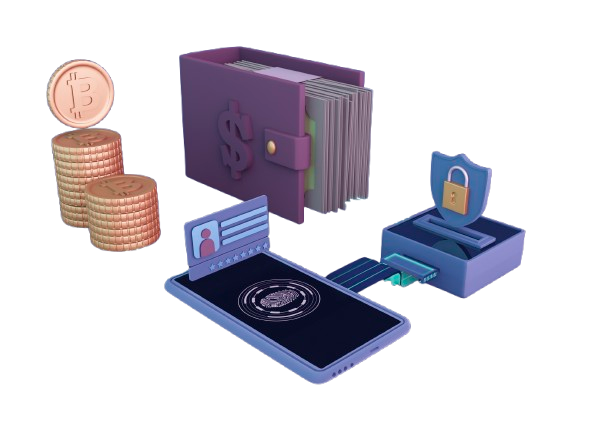
If you’ve been exploring cryptocurrency or already own some, you know security is a top priority. Stories about hackers draining accounts aren’t just headlines—they’re real risks. When it comes to protecting your digital investments, taking extra precautions is not optional.
Many cryptocurrency users have encountered close calls when it comes to account security. For example, entering login credentials on a fake website is a common mistake that can lead to compromised accounts. In such situations, two-factor authentication (2FA) often acts as a critical safeguard, preventing unauthorized access even if a password is stolen. This highlights the importance of 2FA as a vital security measure for anyone dealing with cryptocurrency.
So, what is 2FA, and why should you care about it? Let’s break it down.
What Is 2FA, and How Does It Work in Crypto?
Two-factor authentication, or 2FA, is an additional layer of security designed to keep your accounts safe. Instead of just using a password to log in, 2FA requires a second form of verification. This could be a code from an authenticator app, a physical security key, or even a biometric scan like your fingerprint.
In traditional banking, 2FA is often seen as a bonus feature. However, in cryptocurrency, it’s an absolute necessity. There’s no safety net in crypto—if someone gains access to your account, there’s no hotline to call or insurance policy to fall back on. That’s why having 2FA is so crucial.
The way 2FA is used in cryptocurrency has evolved. Early methods relied on SMS codes, but now more secure options, like authenticator apps and hardware keys, are available. These advancements offer stronger protection, especially against increasingly sophisticated hacking attempts.
Why 2FA Is Crucial for Protecting Your Crypto

When it comes to safeguarding your cryptocurrency, passwords alone just don’t cut it. Hackers are constantly finding new ways to trick people into handing over their credentials.
Whether it’s through phishing emails, fake websites, or SIM-swapping scams, they’re always on the lookout for vulnerable accounts.
This is where 2FA comes in. Even if someone gets hold of your password, they won’t be able to access your account without that second layer of security. It’s like having a second lock on your door—extra protection that makes a big difference.
For crypto users, 2FA isn’t just about peace of mind. It’s about protecting your investments. Losing access to your funds isn’t just inconvenient—it can be devastating. By setting up 2FA, you’re adding an essential layer of protection against these risks.
Different Ways to Strengthen 2FA in Crypto
Using Hardware Security Keys
A hardware security key is a physical device that you use to verify your identity. These small, USB-like devices are popular among cryptocurrency users because they’re offline, making them much harder to hack. Hardware keys integrate with many wallets and exchanges, offering a practical and secure option for protecting your funds.
Biometric Authentication
If you’ve used your fingerprint or face to unlock your phone, you already know how convenient biometric authentication can be. Many crypto wallets now allow you to use biometric methods to access your funds, making security seamless. Combining multiple biometric methods can provide even greater security for larger accounts or more complex transactions.
Time-Based and Transaction-Based Codes
Time-based one-time passwords (TOTP) are generated by apps like Google Authenticator. These codes refresh every 30 seconds, making them highly secure. Some platforms also offer transaction-specific codes, which are used to verify each transfer. Both methods provide an extra layer of protection that’s especially useful for high-value accounts.
Addressing Common Challenges with 2FA
What Happens If You Lose Your Device?
Losing your phone or hardware key can be stressful, but it doesn’t have to spell disaster. Most 2FA systems allow you to set up backup codes when you first enable the feature. These codes act as your safety net, ensuring you can regain access to your account even if your primary device is lost.
Protecting Yourself from Scams
Hackers often rely on social engineering to bypass security measures. For example, they might send phishing emails designed to steal your login credentials or trick your mobile carrier into transferring your phone number to a new SIM card. To minimize these risks, avoid clicking on suspicious links and consider using app-based 2FA instead of SMS codes.
How 2FA Enhances Advanced Crypto Security
Securing Cold Storage

Cold storage is one of the safest ways to store your cryptocurrency since it’s offline and out of reach for hackers.
However, even cold storage benefits from 2FA. For example, some wallets require 2FA to approve offline transactions, ensuring that your funds remain secure even when you move them.
Adding Security to DeFi Transactions
Decentralized finance (DeFi) is growing rapidly, and with that comes new security risks. 2FA adds a vital layer of protection when interacting with DeFi platforms. Whether it’s approving smart contracts or managing recurring transactions, having that extra step helps protect you from unauthorized access.
Combining 2FA with Multi-Signature Wallets
Multi-signature wallets are designed for situations where more than one person needs to approve a transaction. When combined with 2FA, these wallets offer an incredibly secure option for managing large accounts or shared assets. This combination ensures that even if one layer is compromised, the other remains intact.
Looking Ahead
The tools and technology behind 2FA are constantly evolving. Developers are already working on new methods like quantum-resistant encryption and AI-based authentication to make accounts even harder to hack. These advancements aim to provide better security without sacrificing convenience.
At the same time, regulations are beginning to push for stronger security standards across the cryptocurrency industry. While this might seem like extra work, it ultimately benefits users by making crypto platforms safer for everyone.
Conclusion
In cryptocurrency, security is everything. Whether you’re buying Bitcoin, selling Bitcoin, managing a small amount, or overseeing a diversified portfolio, two-factor authentication is one of the simplest and most effective tools you can use to protect your investments.
Setting up 2FA might take a few extra minutes, but it’s a small price to pay for peace of mind. By using advanced methods like hardware keys, biometrics, or transaction-specific codes, you can stay one step ahead of potential threats.
Crypto doesn’t come with guarantees, but with 2FA in place, you’re taking control of your security. Protecting your digital assets isn’t just about technology—it’s about being prepared and staying vigilant. So, if you haven’t already, now is the time to take action and make your accounts as secure as they can be.